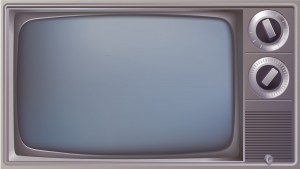My kids hate it when I used them as crash test dummies for my blogging efforts. But as I like to say, “oh well.” 
I use them because they provide me with a very clear window into the generational differences that exist when it comes to media consumption. They have never read a paper from front to back. They don’t gather in the front room to watch an evening news cast. They’ve never dialed a phone. They can’t imagine how the world spun before the Internet. They never, ever listen to AM radio – and poke fun at me for doing so. When they watch “television,” it’s on the computer – mostly on Youtube.
Before I tell this story, also bear in mind that my children were raised in a household where the dad derived his living from working in the news department of broadcast television stations all across the U.S.
So here it is. My oldest was home from college recently on spring break, and at the top of his “to do” list was to get something he had heard about called a digital converter box. He didn’t understand what it was, but there was a buzz amongst his peers at school that it could somehow be used to receive television signals.
He was a little annoyed by my laughter and my disbelief that his notion of free TV was that it was just an unconfirmed rumor. At least the kid is a little skeptical.
He asked me all kinds of questions trying to verify that yes, you could use the box to get free TV. No, it isn’t illegal. Yes, the TV receives a signal sort of like radio. Yes, it comes in HD. No, you can’t get ESPN. Yes, you can get your local network affiliate stations. Yes your local affiliate stations are ABC, NBC, CBS, FOX and PBS. And yes, again, it is free.
He was simply amazed that he could move into his apartment, not pay a cable bill, but still get television.
All this put me into a nostalgic mood. I told him about the days when rabbit ears were used to tune in a TV signal. About how high tech we felt when we got the big antenna on the roof and could spin it remotely to get better reception on certain channels. I told him about my early days in radio when you actually had to have a license from the FCC to monitor and adjust FM radio signals – even if you were just the hosting the program or flying the board. I told him about climbing up transmitter towers with the engineering staff just for thrills. I told him what all those super tall towers he sees on the hills are actually for. I told him about how the sticks used to put out “waves” but are now transmitting “bits” – and ultimately, how his dandy new digital converter box fit into the big picture.
It turns out the kid is pretty excited about free over the air television.
Frankly, I think a lot of people are going to be excited about free over the air television as mobile technology starts to blossom. Broadcasters have a unique ability to serve their markets with resources, technology, information, staff and programming that no other entity can come close to touching.
Yes, there are changes: You have to break news on the Internet. You have to serve a lot of platforms. You have to invest in new ways to manage and distribute your multiple signal paths. But at the end of the day, I think broadcasting is on the verge of a Renaissance.
I think my kids might even agree with ‘ole dad on this one.









